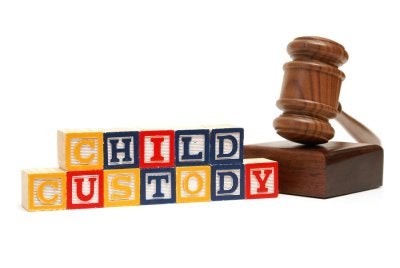-
A Closer Look at Paternity Law and Related Mediation
Paternity plays an integral role in several areas of family law, including the provision of child support and the rights to visitation and input in important decisions regarding upbringing, health, and schooling. If you are concerned about paternity issues or seeking a parenting plan following a divorce that allows both parents to remain active in your child’s life, paternity mediation in Baltimore can help. During mediation, several important parental rights and responsibilities can be discussed and decided upon without the need to seek a court ruling on these matters.

Issues Addressed During Mediation
When a child is born to unmarried parents or when a couple with children opts for divorce, each parent inherently retains certain rights and responsibilities under family law. Regardless of whether both parents wish to actively co-parent the child or whether one parent retains the majority of the decision-making power, certain issues must be resolved such as child support, visitation, custody, medical care, and education. These issues can be discussed and resolved in private with the help of a mediation lawyer to ensure both parents are on the same page regarding rights and responsibilities. If the child’s paternity is in question, paternity mediation can also determine which parent should be responsible for the costs of paternity testing .
Benefits of Paternity Mediation
Seeking mediation to resolve paternity issues or come to an agreement regarding child care and child support is beneficial for several reasons. Mediation helps to foster cooperation between parents whenever possible, improving their relationship and fostering the ability to collaborate and reach agreements or address issues in the future. The process of mediation is also less costly and takes less time to reach a solution than taking the case to court. Mediation allows both parents to take an active role and get the answers they need while working toward an agreement that is best for the parents and the child, rather than requiring the parties involved to follow the mandate of a judge that has no personal stake in the situation.
-
Common Questions About Adoption Mediation
Mediation is an invaluable tool for resolving many different types of disputes, including disputes that involve adoption. Adoption mediation can help adoptive parents and birth parents reach mutually agreeable arrangements that allow them to avoid prolonged and contentious court battles. A mediation lawyer in Baltimore can assist your family in all types of circumstances, including independent adoptions, in-state and out-of-state adoptions, contested adoptions, and many others.

What is a post-adoption communication agreement?
One of the most common problems that adoptive parents encounter is post-adoption contact. An adoption could be proceeding smoothly when one or both of the birth parents abruptly demands ongoing contact with the child after the adoption. Adoptive parents should not feel pressured to immediately agree to the demands of the birth parents. Instead, they can turn to adoption mediation to resolve the conflict by producing a mutually agreeable post-adoption communication agreement. This is a written agreement that is signed by both sets of parents. The purpose of the agreement is to serve the best interests of the child. The agreement outlines the specific contact that will be allowed, including the type of contact (e.g. phone calls, visits, or letters) and the frequency of contact. If visits will be allowed, the agreement should specify the location of the visit and how long it will last. Post-adoption communication agreements, much like child visitation orders, can also make arrangements for dealing with special occasions like birthdays and holidays.
What is a contested adoption?
A contested adoption occurs when a birth parent agrees to place the child for adoption and the other birth parent objects to the adoption. Typically, the birth mother initiates adoption proceedings and the birth father later objects to them. Usually, the law grants preference to birth parents when assessing parental rights. However, adoption mediation can still be useful in contested adoption. In some cases, the objecting birth parent may decide to allow the adoption to proceed if he or she will be granted post-adoption contact.
How can adoptive parents prepare for adoption mediation?
The best way to prepare for adoption mediation is to consult the mediation lawyer. Learn what to expect from a typical mediation session, understand the goals and limitations of mediation, and consider adjusting your mindset. To reach a compromise that is in the child’s best interests, it may be necessary to be open-minded toward the needs of the other set of parents.
-
What Is Interstate Child Support Enforcement?
In family law, an interstate child support case refers to a support order between two parents who live in different states. For example, the custodial parent might live in Maryland and the noncustodial parent might live in Virginia. Sometimes, enforcing a child support order in Baltimore can be difficult when the other parent lives across state lines.
However, as you’ll learn by watching this video, all states have laws that allow for the enforcement of interstate child support orders. If the other parent does not pay his or her child support obligations, you can seek the counsel of a family law attorney. Your attorney may petition the court to enforce the support order. The court can take a number of enforcement actions, perhaps including issuing a wage garnishment order against the non-paying parent.
-
Preparing for a Custody Evaluation
When a child custody and visitation case is contested, the family law judge in Baltimore may order a custody evaluation. A custody evaluator will meet with each parent and the child, along with other relevant parties such as social workers and psychologists. Custody evaluators can also visit each home to make observances about family life. The end result is a written report that the family law judge will use when making a custody and visitation decision. If you’re anticipating a meeting with a custody evaluator, it’s important to sit down with your family law attorney and discuss what you should and shouldn’t do.

Talking to Your Child
The family law evaluator will ask to speak with your child. Many parents are unsure of how to inform their kids of the upcoming appointment. Depending on the age of your child, you could inform him or her that a psychologist wants to talk to him or her about living with mom or dad. However, it’s of the utmost importance to avoid coaching the child on what you want him or her to say. Not only will the family law evaluator be able to discern this, it will likely confuse your child and may have lasting psychological effects.
Knowing How to Answer Questions
Your attorney will likely advise you to practice good listening skills during your conversation with the custody evaluator . Pay attention to what the evaluator is asking you and answer only that question-nothing more. Answer truthfully about your current living situation and your background. If you’re not sure about a question, don’t hesitate to ask for clarification. The evaluator will appreciate your cooperativeness and willingness to get the facts right.
Discussing Sensitive Areas
It’s likely that the custody evaluator will ask you some sensitive questions, such as questions about your strengths and weaknesses as a parent. It’s best not to try to portray yourself as the best parent in the world-the evaluator will see through this. Similarly, try to resist the temptation to portray the other party as a completely incompetent parent. Do acknowledge the other parent’s strengths and weaknesses, and acknowledge the importance of your child having positive, ongoing relationships with both parents.

